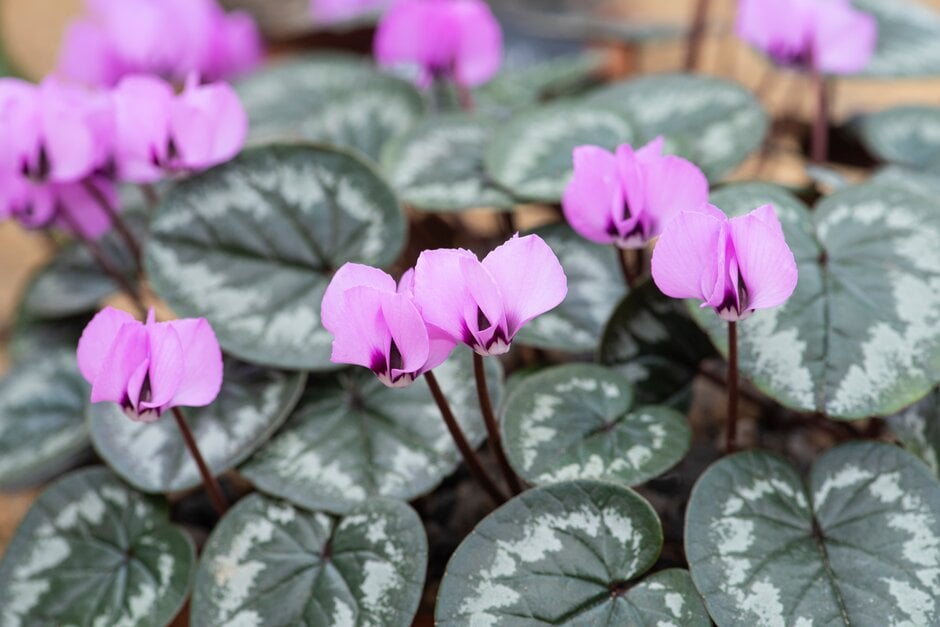Cyclamen orbiculatum
eastern cyclamen
A perennial to 10cm, with rounded dark green leaves sometimes marbled with silver on the upper surface. Flowers 2cm in width, and ranging in colour from white through shades of pink to deep red, often with a purple blotch at the base of each lobe. Flowers open from late winter

Buy this plant
Size
Ultimate height
Up to 10cmTime to ultimate height
2–5 yearsUltimate spread
0–0.1 metreGrowing conditions
Moisture
Well–drainedpH
Acid, Alkaline, NeutralColour & scent
| Stem | Flower | Foliage | Fruit | |
| Spring | White Pink | Green Grey Silver | ||
|---|---|---|---|---|
| Summer | ||||
| Autumn | ||||
| Winter | White Pink | Green Grey Silver |
Position
- Partial shade
Aspect
North–facing or West–facing or South–facing or East–facing
Exposure
Sheltered Hardiness
H5Botanical details
- Family
- Primulaceae
- Native to GB / Ireland
- No
- Foliage
- Deciduous
- Habit
- Tufted
- Potentially harmful
- Ornamental bulbs, not to be eaten. Wear gloves and other protective equipment when handling Pets: Ornamental bulbs, not to be eaten - see the HTA guide to potentially harmful plants for further information and useful contact numbers
- Genus
Cyclamen are tuberous perennials with rounded, sometimes angular, leaves which are often attractively mottled. The nodding, characteristically shaped flowers have 5 reflexed and twisted petals, often with dark markings at the base
- Name status
Correct
- Plant range
- Bulgaria to Caucasus and Israel
How to grow
Cultivation
Plant 5cm deep in moderately fertile, humus-rich, well-drained soil. Avoid excessive summer moisture and mulch well when leaves wither. See hardy cyclamen cultivation for further advice
Propagation
Propagate by seed, sown in darkness as soon as ripe. Can be beneficial to soak seed for 10 hours prior to sowing
Suggested planting locations and garden types
- Rock garden
- Patio and container plants
- Underplanting of roses and shrubs
Pruning
No pruning required
Pests
May be susceptible to mice, squirrels and vine weevil
Diseases
May be susceptible to cyclamen grey mould, particularly when grown under glass
Get involved
The RHS is the UK’s gardening charity, helping people and plants to grow - nurturing a healthier, happier world, one person and one plant at a time.